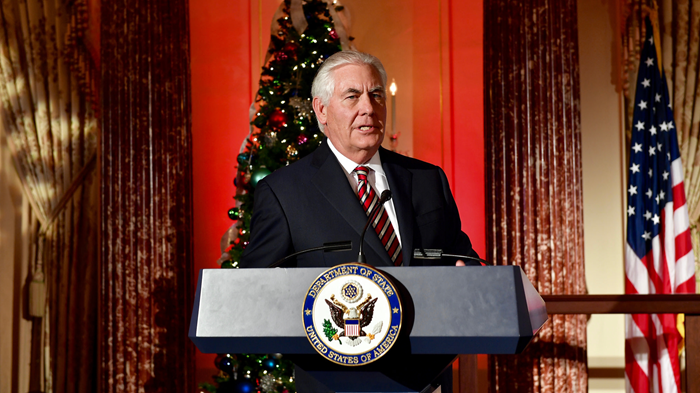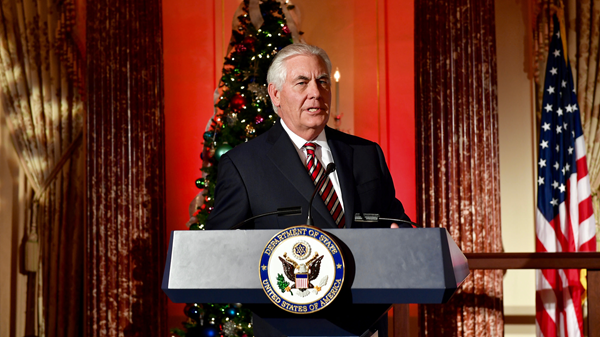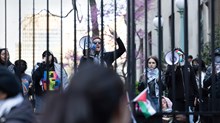

Two weeks ago, the US State Department released its list of countries of particular concern (CPC)—a compilation of nations that have “engaged in or tolerated particularly severe violations of religious freedom.”
The list contains the same names as last year: Burma, China, Eritrea, Iran, North Korea, Saudi Arabia, Sudan, Tajikistan, Turkmenistan, and Uzbekistan. Pakistan was added to a “special watch list” of governments or entities that don’t meet the requirements for the CPC designation yet still “engage in or tolerated” severe religious freedom violations.
The CPC list was about six weeks late, frustrating some religious freedom watchers, including the US Commission on International Religious Freedom (USCIRF), which is appointed by the federal government to make policy recommendations.
The State Department’s Office of International Religious Freedom (IRF)—established nearly 20 years ago under the Clinton administration—is officially tasked with annual reports on the state of religious freedom around the world.
The office is responsible for passing along a list of CPCs to the president each year, who would determine if the religious freedom violations were egregious enough to merit sanctions against particular nations. Almost right away—in 1999—that responsibility of naming the CPCs was shifted to the secretary of state.
But it didn’t always get done. A list came out promptly in 1999 and 2000, but was running two months late by 2001 and missed 2002 entirely, in the wake of 9/11 and the early years of the Iraq war. There was a list in 2003 and 2004, and the first sanctions appeared in 2005. The spotty performances continued: A list was issued in 2006, but not 2007 and 2008, then in 2009, but not 2010, 2012, 2013, or 2015. Two lists showed up in 2016.
Congress addressed the inconsistent religious freedom reports by unanimously passing the Frank R. Wolf International Religious Freedom Act in December 2016. It amended the 1998 policy and added a category of “entities of particular concern” to cover non-government actors such as ISIS or Boko Haram, confimed that the international religious freedom ambassador-at-large reports directly to the secretary of state, and added a 90-day deadline from the time the State Department issues its annual religious freedom report to the time it needs to present a new list of new CPCs.
Not even a year later, the State Department missed its first 90-day deadline, failing to publish a list of CPCs after its August 15 annual report.
The delay was particularly frustrating to USCIRF, which was created in the same bill as the IRF. Over the years, USCIRF has never missed a deadline, functioning as an independent watchdog and recommending lists of CPCs to the State Department. (Because USCIRF is independent, it is thought to have more leeway than the government agency, which might be more hesitant to call out countries it needs to preserve diplomatic relations with.)
“Failing to designate CPCs tells the violators of religious freedom around the world that the United States is looking away,” USCIRF’s chairman Daniel Mark stated in November. “The State Department should make such designations without delay.”
A major part of the problem may have been that the office is missing an ambassador at large. President Donald Trump chose his nominee for the position—Kansas governor Sam Brownback—in July, but Senate confirmation hearings have been slowed down by Democrats angry about Brownback’s stance on LGBTQ issues.
Another uncertainty is the future of the IRF itself. Secretary of State Rex Tillerson wants to combine its office and duties with the Office of Religion and Global Affairs, created four years ago to advise State Department leaders on religion-related policy matters and to help diplomats navigate religious dynamics overseas. (Religious freedom experts are divided over whether the move is a good one.)
Tillerson also wants IRF to absorb the offices for religious minorities in the Middle East and Asia, the representative to Muslim communities, and the special envoy to the Organization of Islamic Cooperation. The efforts are part of an 8 percent cut across the entire State Department, which Tillerson is achieving through hiring freezes and reduced promotions.
His cuts extended to the introduction to this year’s IRF report; Tillerson used just 440 words instead of the typical 5,000 to explain overall global religious freedom issues. Instead of diving into an explanation of problems—such as North Korea’s religious prisoners, Boko Haram attacks in Nigeria, and the instability caused by Islamic extremism in the Middle East—Tillerson called out only ISIS.
Still, “the United States promotes religious freedom as a moral imperative,” he wrote then. “America’s promotion of international religious freedom demands standing up for the rights of the world’s most vulnerable populations.”

Support Our Work
Subscribe to CT for less than $4.25/month


















